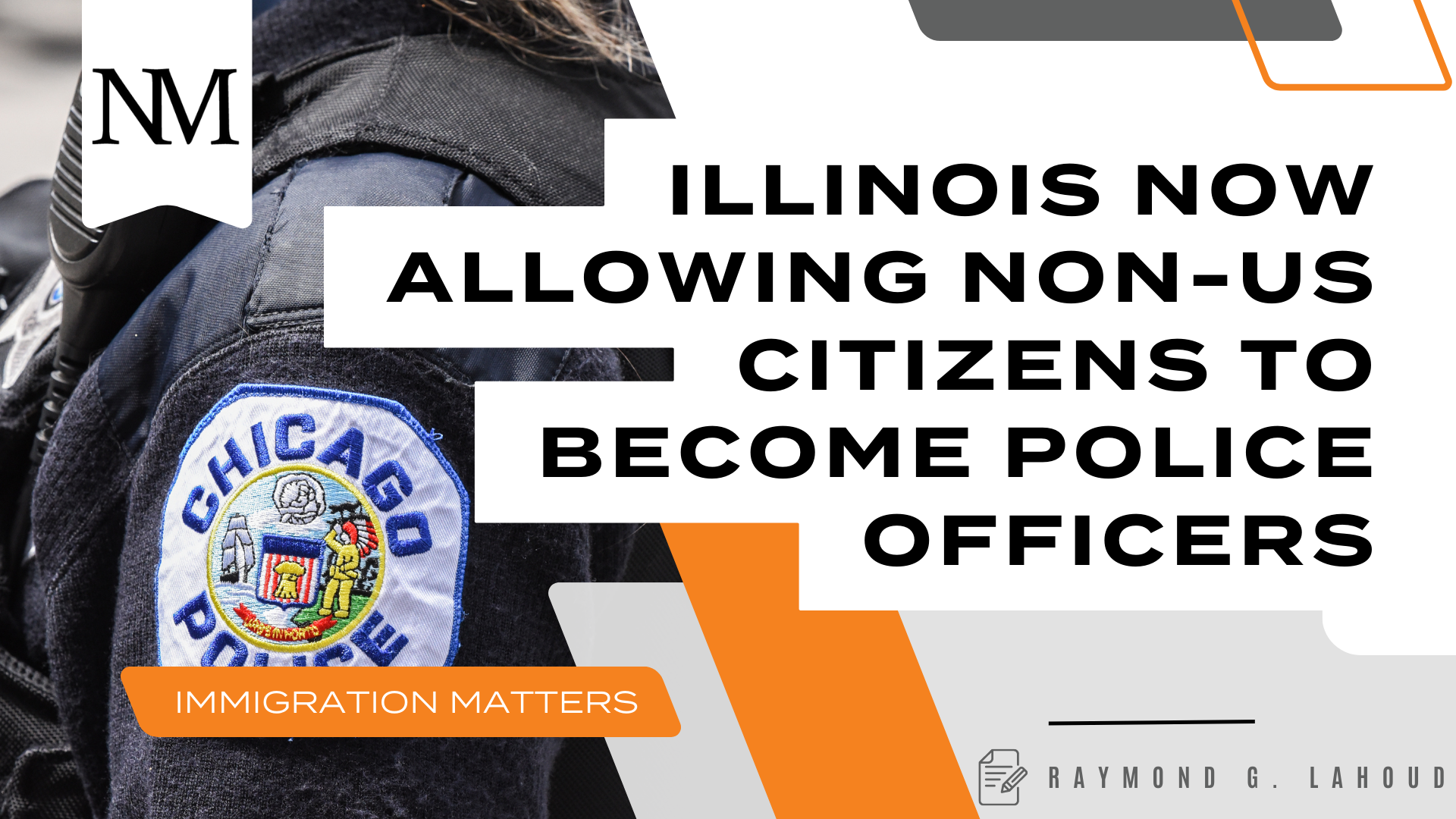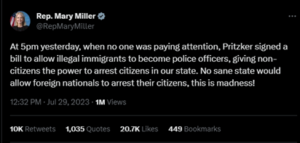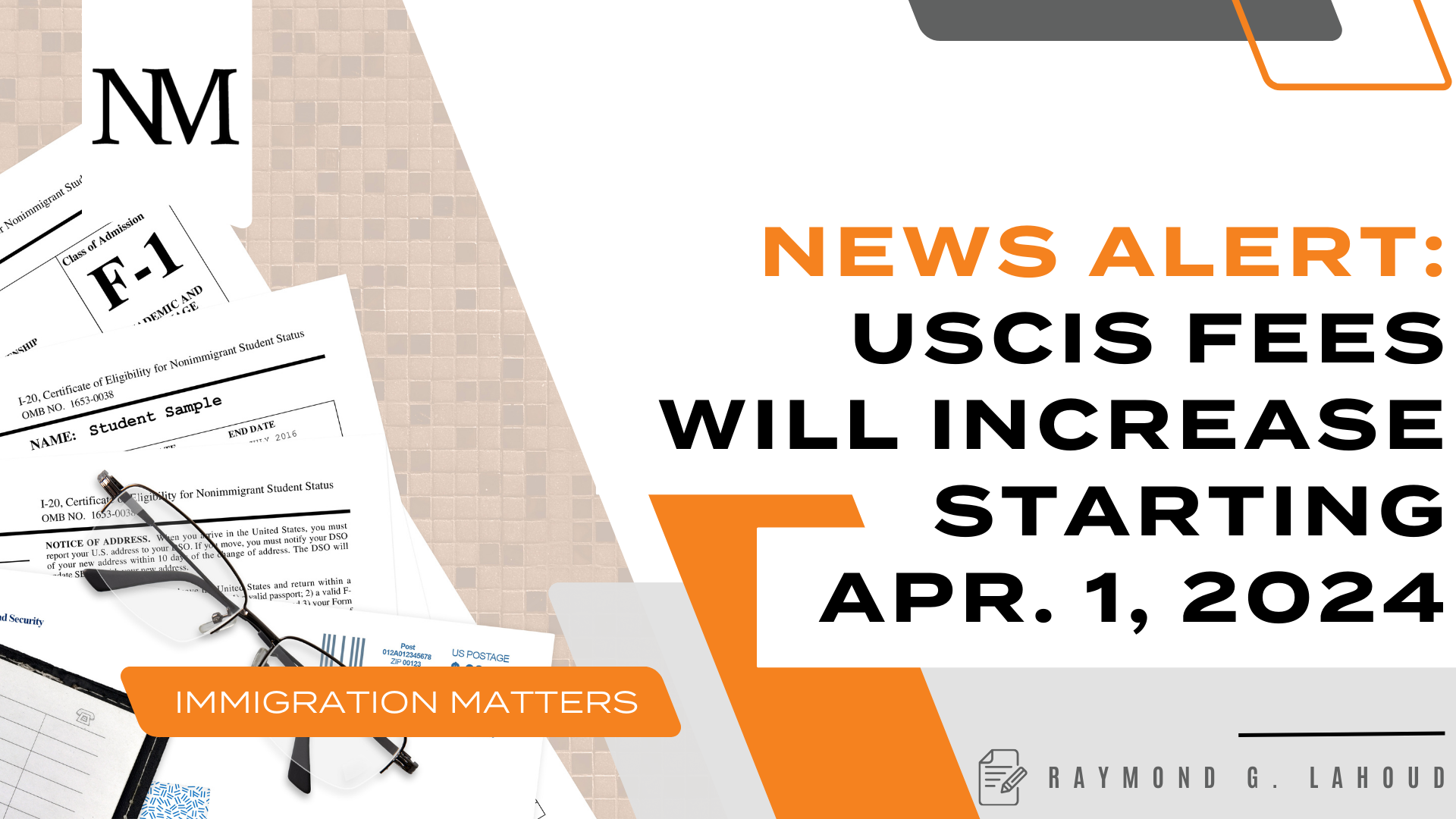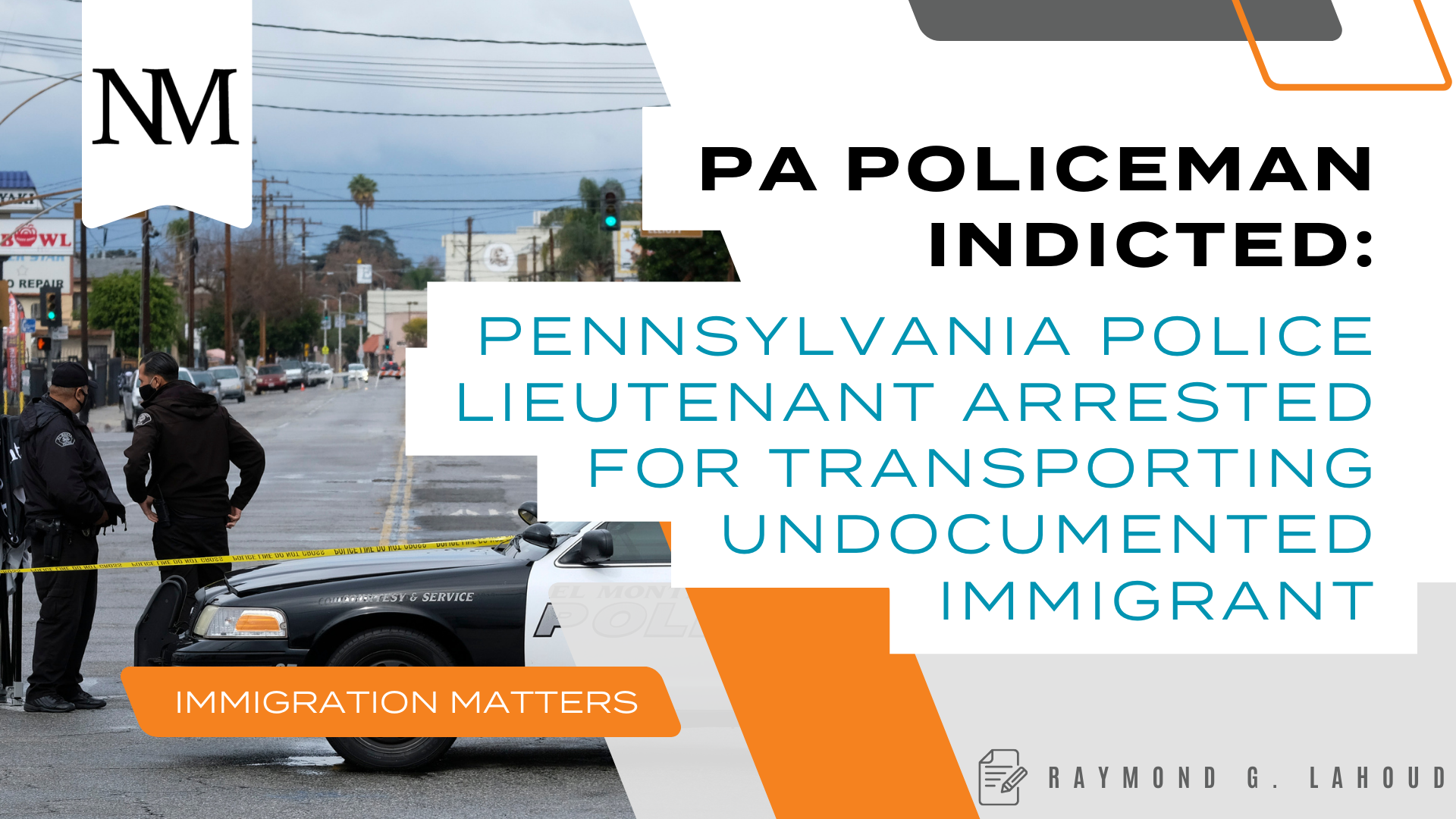Illinois Now Allowing Non-US Citizens to Become Police Officers

Illinois Gov. J.B. Pritzker recently signed into law Public Act 103-0357, which amended the state’s police certification statute to allow individuals who are not United States Citizens to become police officers within the state. Critics are incorrectly claiming that the changes to the police certification statute will enable anyone in the U.S. to become a police officer, regardless of immigration status, manner of entry into the United States, or whether their entry was legal.. Critics argue that this will put “criminals” and “illegal aliens” into the police ranks.

Prior to the bill’s enactment, only U.S. citizens were eligible to become police officers. This prevented thousands of lawful permanent residents (green card holders) and many others who were lawfully in the United States from applying to join the policing ranks.
To Whom Does the Law Apply?
Public Act 103-0357 provides that any Illinois city, municipality, town, or village may authorize, empower, employ, or permit any person to act as deputy sheriff or special policeman for the purpose of preserving the peace who:
- Is not a citizen of the United States, is legally authorized under federal law to work in the United States, and is authorized under federal law to obtain, carry, purchase, or otherwise possess a firearm; or
- Has had immigration action deferred by the United States Citizenship and Immigration Services under the Deferred Action for Childhood Arrivals (DACA) process and is authorized under federal law to obtain, carry, purchase, or otherwise possess a firearm.
The change in law does not permit all non-U.S. citizens to become police officers; rather, it is restricted to a certain class of non-U.S. citizens through its interplay with federal immigration and firearm laws. For example, Section 922(g), Title 18 of the United States Code prevents any person who is illegally or unlawfully in the U.S., or who last entered the U.S. under a nonimmigrant visa, from obtaining, carrying, purchasing, or possessing a firearm. This federal provision trumps the Illinois law in that it prevents any person in the United States who does not have lawful status, is undocumented, is on a visa overstay, or last entered the U.S. pursuant to a temporary visa (i.e., student, work, or visitor) from establishing eligibility to become a police officer pursuant to Public Act 103-0357.
DACA Recipients Not Eligible, Even Though Law Provides for Eligibility
Moreover, while Public Act 103-0357 permits DACA recipients to become police officers, preemptive federal law prevents DACA recipients from securing federal authorization to obtain, carry, purchase, or possess a firearm. DACA was established through a Memorandum of then-Secretary of the United States Department of Homeland Security Janet Napolitano on June 15, 2012. The purpose of the Memorandum was to “implement policy measures to assist in ensuring immigration enforcement resources were not expended on low priority cases in lieu of focusing on individuals who met enforcement priorities.” The Memorandum set forth a policy to defer removal proceedings for two years, subject to renewal, of persons who came to the U.S. as children and met certain other eligibility requirements. It did not, however, “confer [any] substantive right, immigration status or pathway to citizenship,” as only “Congress, acting through its legislative authority, can confer these rights.” DACA is simply a deferral of removal proceedings, not a form of lawful status in the United States. Given this, DACA recipients are not permitted to obtain, carry, purchase, or possess a firearm, thereby preventing their eligibility to become Illinois police officers.
Further, individuals litigating asylum claims (not yet granted asylum), are in ongoing removal proceedings, have not been granted any form of lawful status, or have had their immigration court cases closed in the exercise of the Department of Homeland Security’s discretion are similarly not eligible to become Illinois police officers.
The TPS Exception
Unlike DACA recipients, pending asylees, or others with no lawful status or in removal proceedings, federal courts have held that individuals granted Temporary Protected Status (TPS) are not subject to the firearm possession prohibitions set forth in Section 922(g), Title 18 of the United States Code. TPS is granted to individuals not lawfully in the U.S. who are citizens of countries that the U.S. Attorney General has designated, by virtue of the authority provided in Section 1254a(b), Title 8 of the United States Code, as “experiencing ongoing armed conflict, environmental disaster, or other extraordinary and temporary conditions.”
A national of a TPS-designated country may apply for temporary protected status, which protects the person from deportation. Unlike DACA, Section 1254a(f)(4) provides that individuals granted TPS are “considered as being in, and maintaining, lawful status as a nonimmigrant.” TPS status is not an exercise of prosecutorial discretion, but a creation of Congress, acting through its legislative authority, which confers protection from deportation and deems a person approved for TPS as one who is in and continually maintaining lawful status in the U.S..
Conclusion
When read together with the federal immigration and firearm laws that preempt Illinois state laws, Public Act 103-0357 is quite narrow in scope. In fact, its scope is so narrow that it applies only to non-U.S. citizens who are lawful permanent residents (green card holders), have been granted asylum protection, or are protected from deportation because of TPS designation.
Those critical of the legislation, once again, jumped to unfounded conclusions.
Job eligibility is an increasingly important aspect of immigration as we fight nationwide layoffs and increased processes with job applications, such as E-Verify, in border states. If you have any questions, or want to learn more about TPS or DACA, feel free to reach out to me at rglahoud@norris-law.com.




